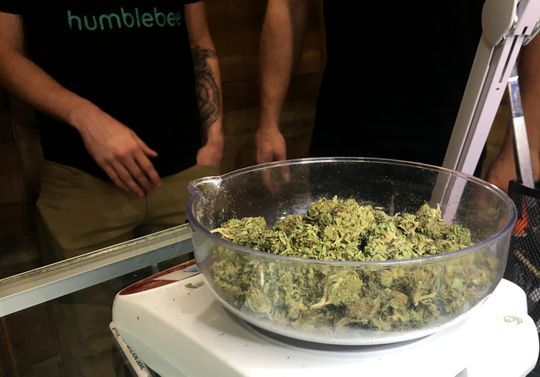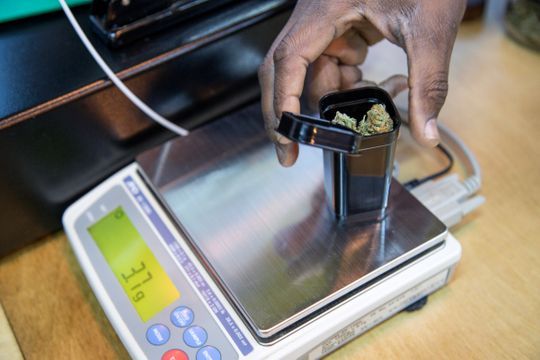"It's ironic that so many of these caregivers have been punished or felonized for this activity," said Josh Colton, a lawyer with Komorn Law. "Now the government is turning around and telling caregivers that they are needed."
Yep, that's government at work, right there.
Medical marijuana shortage pushes officials to consider breaking their own rules
Michigan officials are proposing a solution to a shortage of medical marijuana in the newly licensed industry -- but some lawyers say it's an ironic suggestion that could land caregivers in jail.
To keep shelves stocked at licensed medical marijuana shops, state regulators are asking the Medical Marihuana Licensing Board to look the other way if the shop is buying marijuana from caregivers. Right now, licensed retail stores could be fined or lose their license for such activities.
"It's an agreement to not take licensing action for certain activities," said Andrew Brisbo, director of the Bureau of Medical Marihuana Regulation. "It's not an authorization for anything outside of that."
The board will consider the resolution at its next meeting Dec. 7.
But lawyers representing provisioning centers find hypocrisy in the request.
"It's ironic that so many of these caregivers have been punished or felonized for this activity," said Josh Colton, a lawyer with Komorn Law. "Now the government is turning around and telling caregivers that they are needed."
During the past year, state regulators have agreed to not go after dispensaries who sell marijuana grown by caregivers.
It's the reason nearly 100 dispensaries have been allowed to operate in Michigan unlicensed, and the source of a constantly changing deadline for compliance. There currently is no deadline.
The stance by the Department of Licensing and Regulatory Affairs has allowed caregivers to continue to sell to dispensaries -- at their own risk.
"That's the irony: the state didn't acknowledge where the product was coming from," said Thomas Nafso, an attorney who represents three Detroit provisioning centers owned by Green Skies. "There is nothing in the law that permits the caregivers to deliver to the dispensaries."
A court case established that caregivers in Michigan could only sell marijuana to five registered patients with whom they have a relationship. There is no provision in state law that allows caregivers to sell to businesses.
Michael Komorn, a criminal defense attorney and president of the Michigan Medical Marijuana Association, said he has caregivers as clients who have felony criminal cases pending for possession with intent to deliver.
"I have had many cases over the last eight years that alleged felony marijuana crimes for behavior that LARA just codified as a part of their system," Komorn said. "The takeaway it would suggest is that it has been realized now by the state that they need caregivers for the state's medical marijuana program to work. They may not want to admit it, but this last play by LARA seals it."
That practice was supposed to end once a provisioning center gained a state license and switched over to sourcing its medical marijuana from a licensed grower.
The state has been issuing licenses since July; so far 40 provisioning centers and 12 growers are among the 67 licenses issued. There still is not enough medical marijuana from licensed growers to go around.
The Bureau of Medical Marihuana Regulation is now proposing that caregivers could continue to provide medical marijuana to licensed provisioning centers without fear of retribution from the licensing board.
"As we move forward with the transition to the regulated market there were certainly concerns that arose with continued access of product," Brisbo said.
There are 43,056 caregivers in Michigan, and 297,515 patients.
Brisbo said the intent of the resolution has been communicated with law enforcement partners.
Specifically, the proposed resolution would allow a licensed provisioning center to stock up on marijuana and marijuana products from caregivers until Dec. 31 -- and could continue to sell it after Jan. 1, 2019, as long as it has been tested and entered into the state's tracking system.
Colton said he's skeptical as to whether the proposed resolution from LARA would be effective in the long term.
"It's still, in my opinion, a short-term solution to a much longer-term problem," Colton said. "This is certainly much-needed relief and would certainly allow patients to get the same medicine that they have had under the past 10 years through Dec. 31."
Colton added: "I would be remiss to think this is the last extension."








